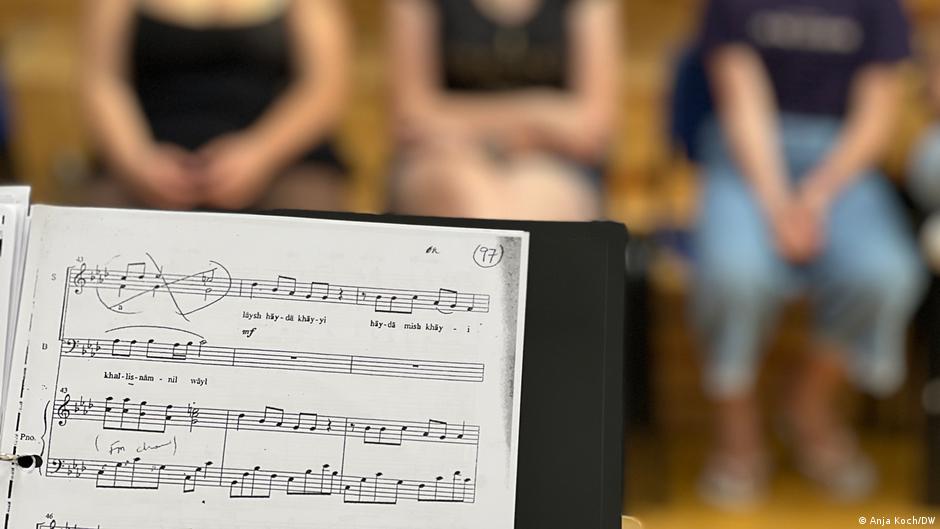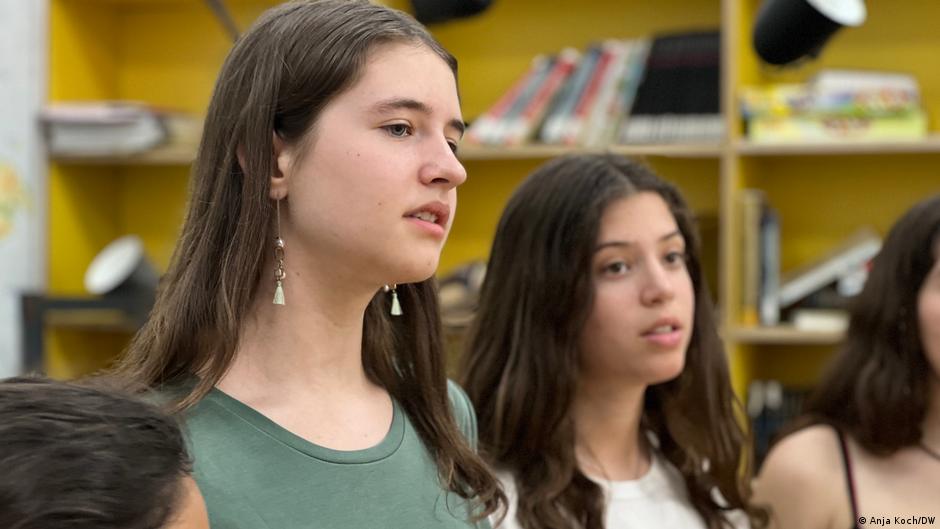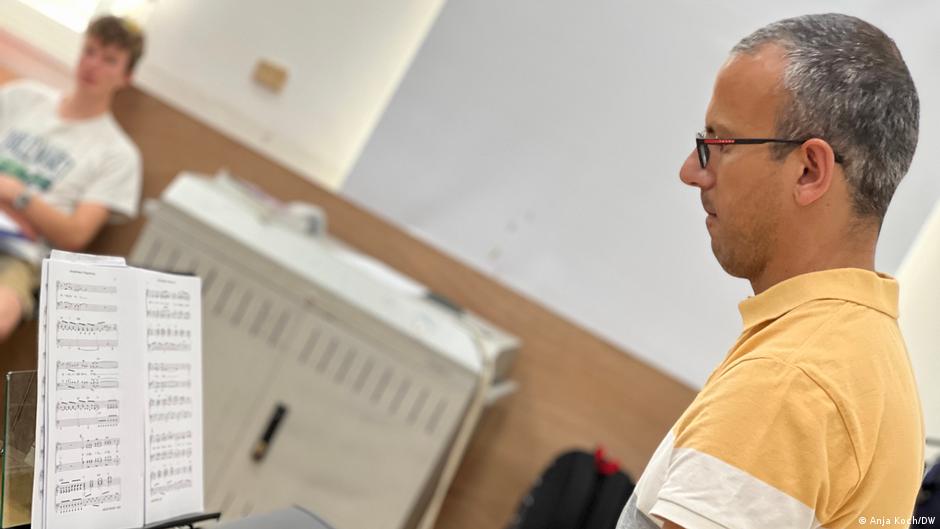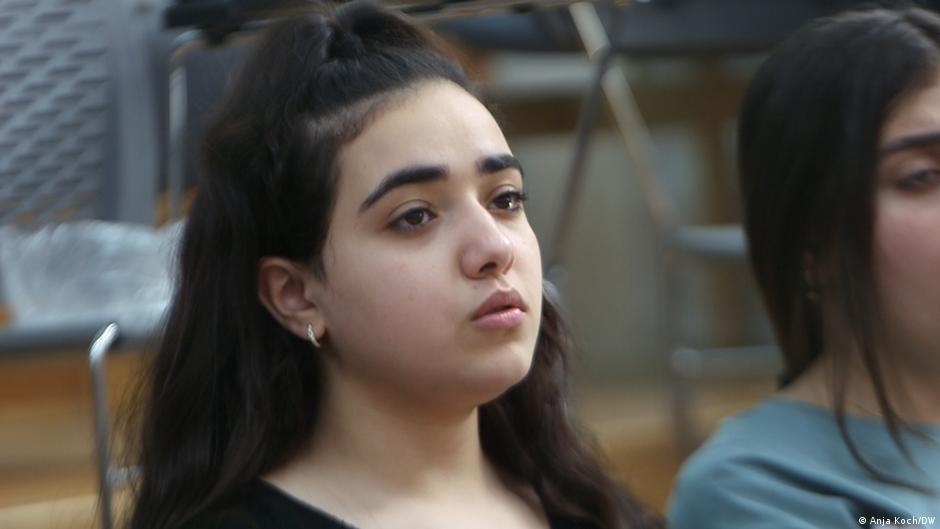Building bridges with song

Avital is already familiar with the melody, but she still has to get to grips with the lyrics. The 15-year-old is practicing the song "Khallina Nimshi", "Let's go". But the Jewish Israeli doesn't understand its Arabic words.
For Yasmin a few metres away, on the other hand, the words sound familiar, because Arabic is her mother tongue. The two girls sing together with 13 other students in the Jerusalem Youth Chorus. Every week they meet in the classroom of a West Jerusalem school, among them Jews, Christians, Muslims. Some speak Hebrew, others Arabic, which is why interpreters are always present. "They explain to us what the songs are about," says Avital, "so we can feel the emotions, but the pronunciation is a challenge."
Jerusalem: A city full of mistrust
The fact that the Israeli Avital and the Palestinian Yasmin regularly rehearse together and that their repertoire consists of Hebrew, Arabic and English songs is anything but a given. In this city, which is sacred to Jews, Christians and Muslims, there is a lot of mistrust between the religious groups and conflict is omnipresent.

Most of the inhabitants of West Jerusalem are Jewish Israelis, while those in annexed East Jerusalem are Palestinians with special status. They are so-called "permanent residents" of the city and can move freely within Israel, unlike Palestinians from the West Bank, for instance.
Friendly interaction between Israelis and Palestinians is almost non-existent in Jerusalem, as they live in different neighbourhoods and attend separate schools. This is precisely what the choir aims to change.
"The choir is very different to our everyday life here in Jerusalem," says Yasmin, "I can meet new people here and get new perspectives, that's why I'm here. I wanted to meet these people who, after all, live in the same city as me." That is also what brought Avital to the Jerusalem Youth Chorus. She says it's a good way to come into contact with different cultures: "I think this is exactly what our country needs."
The choir directors are therefore very careful to ensure that half of the young people come from East Jerusalem and the other half from West Jerusalem. The selection of songs is also based on a quota, explains conductor Hani Kreitem: "We sing Hebrew and Arabic songs in equal measure so that everyone feels comfortable. At the same time, everyone also has to sing in the other language."

The choir opens up a new world
Those who want to join the choir must succeed in audition - not only by having a good voice, but also by being open and willing to discuss. Each rehearsal lasts four hours, one and a half of which are reserved for discussion - in which everyone has to take part. The idea is that the young people learn to listen to each other and understand how different everyday life can be, depending on which neighbourhood they come from. Interpreters and moderators monitor the discussion.
"We speak very freely and openly," says Yasmin, "I quickly learned to trust the others; I like listening to what they have to say. And I also have the feeling that they are really interested in me. It's like a whole new world opening up in my life."
Avital also got used to the discussion group quickly and admits she has learnt some fundamental things there: "I'm a bit embarrassed; I always thought that all Arabs were Muslims. Here I learned that some of them are Christians and that their holidays are quite different to ours."
The choir, which is financed exclusively by donations, has existed for ten years. U.S.-American founder and choir musician Micah Hendler is not only proud of their performances in the USA and Japan. It is also particularly important to him that the rehearsals have always continued to take place, even during periods of extreme political turmoil.

In recent weeks, Jerusalem has been in the headlines again, with knife attacks and clashes on Temple Mount. But that doesn't deter the singers: "So what if there are always attacks, what does that have to do with us here?" asks Avital. Yasmin feels the same: "The choir is something completely different! It is detached from everything that happens outside, we have our own world here."
So it's quite fitting that the rehearsal continues with an English song. "A Million Dreams" is the name of the song, it's about how you can create a new reality if you just believe in your dreams hard enough. Gradually all the singers join in, first the sopranos, then the altos and finally the tenors. And then the many different voices become a harmonious whole.
Anja Koch
© Deutsche Welle / Qantara 2022
